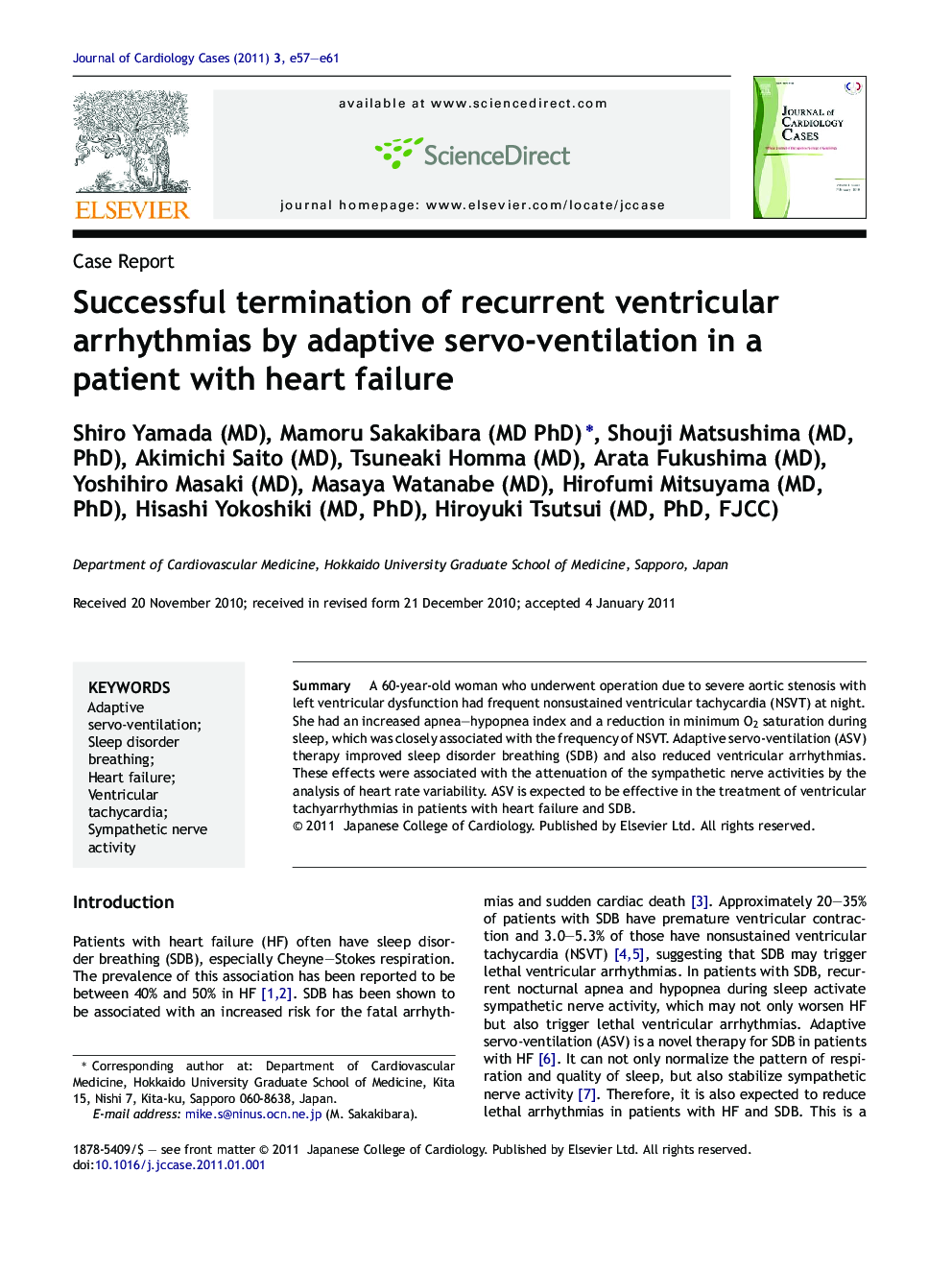| Article ID | Journal | Published Year | Pages | File Type |
|---|---|---|---|---|
| 2963991 | Journal of Cardiology Cases | 2011 | 5 Pages |
Abstract
SummaryA 60-year-old woman who underwent operation due to severe aortic stenosis with left ventricular dysfunction had frequent nonsustained ventricular tachycardia (NSVT) at night. She had an increased apnea–hypopnea index and a reduction in minimum O2 saturation during sleep, which was closely associated with the frequency of NSVT. Adaptive servo-ventilation (ASV) therapy improved sleep disorder breathing (SDB) and also reduced ventricular arrhythmias. These effects were associated with the attenuation of the sympathetic nerve activities by the analysis of heart rate variability. ASV is expected to be effective in the treatment of ventricular tachyarrhythmias in patients with heart failure and SDB.
Keywords
Related Topics
Health Sciences
Medicine and Dentistry
Cardiology and Cardiovascular Medicine
Authors
Shiro Yamada, Mamoru Sakakibara, Shouji Matsushima, Akimichi Saito, Tsuneaki Homma, Arata Fukushima, Yoshihiro Masaki, Masaya Watanabe, Hirofumi Mitsuyama, Hisashi Yokoshiki, Hiroyuki Tsutsui,
